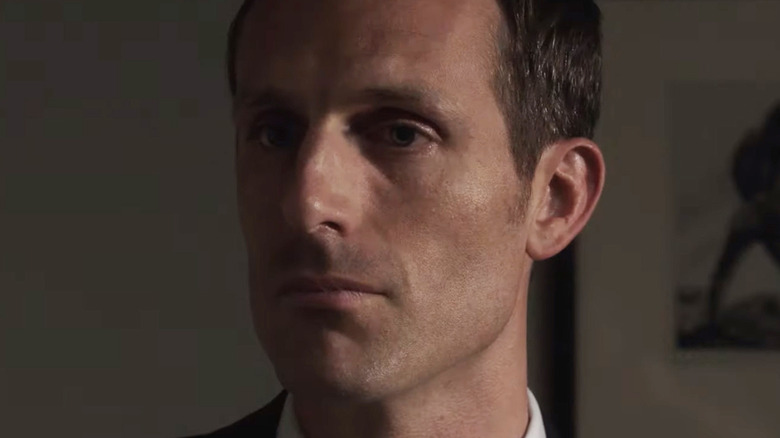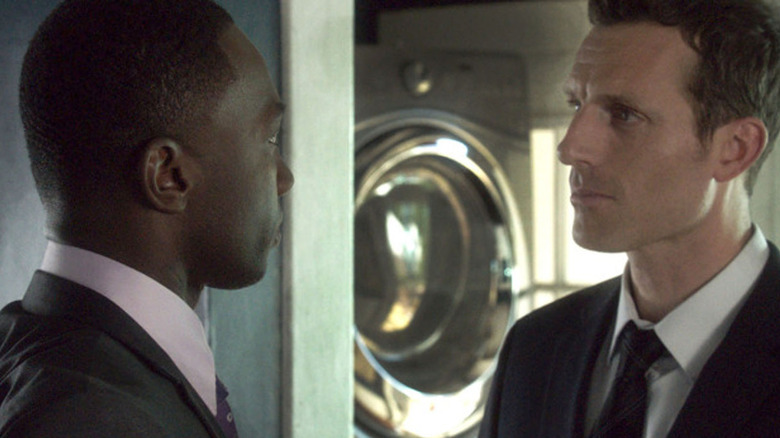Is Doubting Thomas Based On A True Story?
In "Doubting Thomas," actors Will McFadden (who also co-wrote and directed the film) and Sarah Butler (star of the remake of the notoriously disturbing "I Spit on Your Grave") portray Tom and Jen — a married couple who, at the beginning of the movie, are expecting their first child. Early on in the film's runtime, Jen gives birth. To the surprise of both parents, their child is Black, whereas both Tom and Jen are white.
On one hand, Tom and Jen suspect that this could be the result of a recessive gene, in the parlance of scientist Gregor Mendel, inherited from one of their ancestors manifesting itself generations later. On the other hand, Jen's best friend Ron (Jamie Hector) is Black, and Tom suspects she's been having an extramarital affair and that Ron is the child's biological father.
In a review of "Doubting Thomas" published on the Hollywood Reporter, critic John Defore wrote that despite its "dicey-sounding premise," the film manages to treat its subject matter in a way that is "imperfect but admirable for a serious approach that doesn't stumble over into off-putting earnestness."
The precise details of such a scenario might seem unlikely, to the extent that the circumstances of the film's inciting incident function as a neatly constructed framework for delving into societal perceptions of race. That said, while the premise of "Doubting Thomas" was engineered explicitly to spark conversation, the film was actually inspired by a true story — but not about a Black child being born to a white couple.
The real-life story that inspired Doubting Thomas
The real-life story that inspired "Doubting Thomas," as cited on the film's official website, was the murder of a Black man named Rogers Campbell, who died in police custody. Rogers Campbell's son, Thomas Campbell, was one of the two writers of "Doubting Thomas," and intended the film as a broader expression of his lived experience.
In an essay he published to his personal Medium account, Campbell explained the impetus behind his work on "Doubting Thomas." Campbell characterized the pain of his father's murder as "the scarred over soul of a boy that held on to the memories of a summer spent with his dad before that father's death in custody." He went on to express how, "through catharsis, and a friend, I eventually wrote the film 'Doubting Thomas' to share my truth."
The plot of "Doubting Thomas," then, is not about a murder in police custody. According to Campbell, "The incident of police brutality is an Easter egg. A hidden truth, in plain sight." The thought and emotions the movie is intended to provoke are taken from Campbell's real-life suffering.
"I wrote this movie for white people," Campbell said, explaining that it's white Americans in particular that he hopes the film will inspire a reckoning in. His father's murder, then, is inseparable from "Doubting Thomas" not literally but spiritually.

